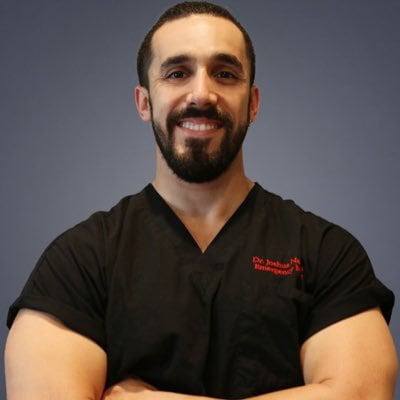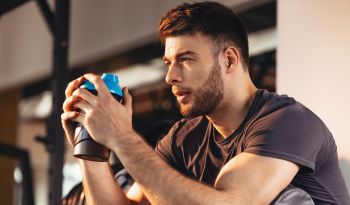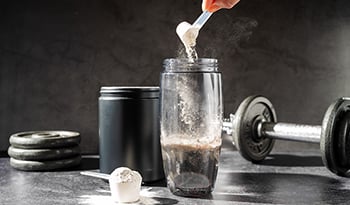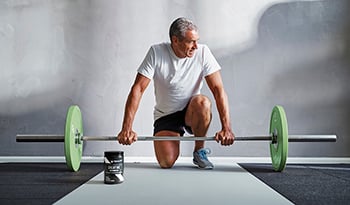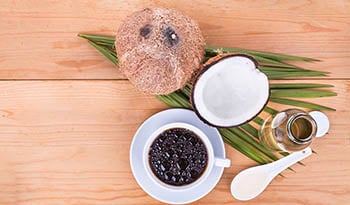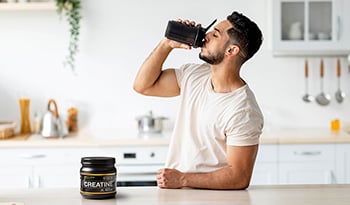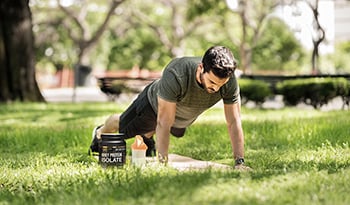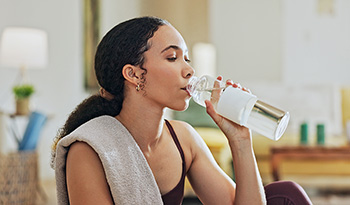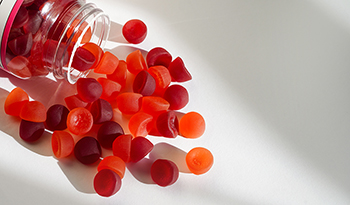크레아틴 보충제에 관한 포괄적 안내서
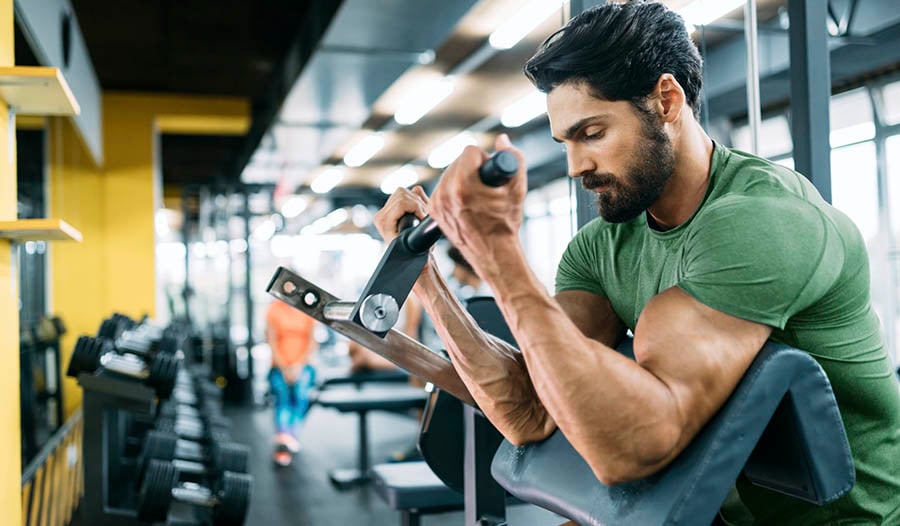
크레아틴은 주로 근육 세포에서 발견되는 자연 발생 물질입니다. 크레아틴은 주로 육류나 해산물 식단에서 섭취할 수 있으며, 신체에서 생산되는 부분은 이보다 적습니다. 보충제 없이 인체의 근육이 저장하는 크레아틴은 일반적으로 약 60~80% 포화되어 있습니다. 채식주의자는 크레아틴을 식단으로 섭취할 수 없기에 저장되는 크레아틴의 기준치는 더 낮습니다. 그러므로 보충제를 통해 더 많은 유익을 누릴 수 있습니다. 크레아틴의 주된 기능은 인체의 세포 내에서 에너지로 사용되는 분자인 아데노신 3인산(ATP)을 보충하는 것입니다. 짧고 강렬하게 한차례 운동하면서 빠르게 ATP를 재생성하는 능력은 근육에서 사용 가능한 크레아티닌에 의해 부분적으로 제한됩니다.
크레아틴에 관한 연구는 1980년대부터 활발히 진행되었으며 1,000개가 넘는 연구가 발표되었습니다. 크레아틴을 보충할 때 주된 유익은 체육관이나 운동장에서 운동 능력이 향상한다는 것입니다. 운동 능력 향상을 다루는 대부분의 연구에서 고강도 운동의 경우 10~20% 향상된 것이 나타났습니다. 예를 들어, 저항력 훈련을 하는 사람에 관한 연구에서, 크레아틴을 받은 그룹은 평균적으로 벤치 프레스 5세트에서 추가로 1~2회 할 수 있었습니다. 추가 1~2회는 그리 많아 보이지 않지만, 지속해서 10~20% 더 많은 반복을 할 수 있는 능력은 근육 발달과 근력 증가로 이어질 수 있습니다.
크레아틴은 모두에게 좋은가요?
크레아틴은 주로 남성을 대상으로 연구되었지만, 대부분의 연구에서 여성에게도 비슷한 효과가 있을 수 있다고 밝혀졌습니다. 실제로, 일부 연구에서는 여성의 경우 남성보다 더 크레아틴의 효과가 크다고 합니다. 거기다, 크레아틴 보충제는 성인을 대상으로 비슷한 결과가 산출되도록 광범위하게 연구되었습니다. 안타깝게도 크레아틴의 효능은 보편적이지 않습니다. 개인에 따라 다른 결과가 나오는데 운동 능력이 거의 개선되지 않은 사람부터 상당히 뚜렷한 개선을 보인 사람까지 다양합니다. 몇몇 사람에게는 뛰어난 효능이 없을 수도 있지만, 크레아틴 보충을 시도해보는 것은 충분히 가치가 있습니다. 크레아틴 보충제는 운동 능력과 근육 발달 보조를 위한 보충제 중 가장 효과적이라고 알려져 있습니다.
안전한가요?
운동능력 보충제 중에서 크레아틴이 30년 이상 가치 있는 자료들로 활발히 연구가 진행되었기에, 안전하다는 지표가 매우 많습니다. 크레아틴이 탈수와 근 경축을 일으킨다는 다양한 주장들이 있지만, 최고의 연구에서 그런 부작용은 보이지 않습니다. 거기다 크레아틴이 신장 질환을 촉진한다는 오해가 있습니다. 젊고 건강한 사람에서부터 늙고 병든 사람에 이르기까지 다양한 사람을 대상으로 하고 단기 및 장기로 이루어진 여러 연구에서 어떠한 부작용도 나타나지 않았습니다.
부작용이 없나요?
모든 연구에서 일관되게 말하는 부작용은 조금 체중이 증가하는 것입니다. 주로 근육 내 수분 유지가 증가했기 때문입니다. 모두가 크레아틴을 보충한다고 체중이 증가하는 것은 아니지만, 대부분의 연구에서 75kg 정도의 사람들의 체중이 약 1kg(1kg에서 3kg 이내) 증가했습니다.
크레아틴을 어떻게 섭취하나요?
크레아틴은 다양한 제형으로 제조되지만, 가장 저렴하고 일반적이며 많이 연구된 것은 크레아틴 모노하이드레이트입니다. 크레아틴 모노하이드레이트는 일반적으로 알약과 파우더 형태로 제조되며 같은 효능을 지닙니다. 크레아틴의 효능은 근육이 충분히 포화한 상태에서만 볼 수 있습니다. 크레아틴을 섭취할 때는 두 가지 방법이 있습니다. 로딩 vs 로딩하지 않음
- 로딩: 5~7일간 몸무게 1kg당 0.3g 이후에는 매일 5g씩 드세요. 로딩 방식은 약 1주 안에 근육에 크레아틴을 포화하고 결과가 눈에 보입니다. 다운사이드 로딩은 매일 많은 양의 크레아틴을 섭취하는 방식입니다. 신뢰할만한 대부분의 연구에서 위장통에 관한 결과는 나오지 않았지만, 한 연구에서 복용량을 5g 이상으로 늘릴 경우 위장통이 생길 위험이 커질 수 있다고 합니다.
- 로딩하지 않음: 매일 5g씩 드세요. 근육에 크레아틴으로 포화하기까지 일반적으로 3~4주가 필요합니다. 인내심을 가지세요.
비록 언제 크레아틴을 먹어야 최대 효과를 볼 수 있는지에 관한 강한 과학적 논증은 없지만, 크레아틴 보충제 복용 시간과 훈련 세션의 관련성은 자주 논해집니다. 대부분의 연구에서는 크레아틴 복용 시간을 강조하지 않습니다. 노인을 대상으로 한 작은 연구에서 운동 전이나 후 복용시간에 따른 차이가 없었으며, 취미로 근육 단련을 하는 청년을 대상으로 한 다른 연구에서도 신체 성분과 벤치 프레스 반복 최대(RM)에 별다른 변화가 없었습니다. 보통 운동 전에 단백질 셰이크를 먹는다면 추가적인 효과를 위해 크레아틴을 첨가할 수도 있습니다. 하지만 운동 전에 먹는다고 조바심을 내서는 안 됩니다.
신체의 인내력을 증진해주고 시간이 지나면 서서히 감소하는 카페인과 같은 보충제와 달리 크레아틴의 효과는 지속적이어서 주기를 필요로 하지 않습니다.
몇몇 사람은 흡수력을 향상하고 근육에 크레아틴을 더 축적하기 위해 크레아틴을 다량의 탄수화물과 함께 섭취하는 것이 좋다고 주장합니다. 탄수화물이 크레아틴이 근육에 축적되는 것을 도울 수 있는 것은 사실이지만, 이 방법에 관한 이점을 보여주는 어떤 연구도 시행되지 않았습니다.
크레아틴 모노하이드레이트 말고도 염산 크레아틴(HCl)과 크레아틴 에틸 에스테르(CEE)와 같은 다른 형태의 크레아틴이 있습니다. 현재 학술 문헌에는 이런 형태의 크레아틴이 크레아틴 모노하이드레이트보다 낫다는 주장을 뒷받침할 근거가 없습니다. HCl의 주 장점은 물에 잘 녹는다는 것이지만, 비교적 가격 부담이 있습니다. 몇몇은 HCl의 총복용량이 모노하이드레이트보다 적다고 주장하지만, 그런 연구 결과는 없습니다. 반면 CEE의 효능은 크레아틴 모노하이드레이트만큼 효과적이지도 않고 위약이랑 비슷한 수준인 것으로 나타났습니다.
끝으로, 크레아틴은 안전하고 저렴하며 매우 효과적입니다. 매일 크레아틴을 섭취하세요... 의사의 지시사항입니다!
참고문헌:
- Brosnan ME, Brosnan JT. The role of dietary creatine. Amino Acids. 2016;48(8):1785-1791.
- Kreider RB, Kalman DS, Antonio J, et al. International society of sports nutrition position stand : Safety and efficacy of creatine supplementation in exercise , sport , and medicine. . 2017:1-18.
- Burke DG, Chilibeck PD, Parise G, Candow DG, Mahoney D, Tarnopolsky M. Effect of creatine and weight training on muscle creatine and performance in vegetarians. Medicine and science in sports and exercise. 2003;35(11):1946-55.
- Kreider RB. Effects of creatine supplementation on performance and training adaptations. Molecular and Cellular Biochemistry. 2003;244(1-2):89-94.
- Volek JS, Kraemer WJ, Bush Ja, et al. Creatine supplementation enhances muscular performance during high-intensity resistance exercise. Journal of the American Dietetic Association. 1997;97(7):765-770.
- Kresta JY, Oliver JM, Jagim AR, et al. Effects of 28 days of beta-alanine and creatine supplementation on muscle carnosine, body composition and exercise performance in recreationally active females. Journal of the International Society of Sports Nutrition. 2014;11(1):55.
- Larson-Meyer DE, Hunter GR, Trowbridge CA, et al. The effect of creatine supplementation on muscle strength and body composition during off-season training in female soccer players. Journal of Strength and Conditioning Research. 2000;14(4):434-442.
- Vandenberghe K, Goris M, Van Hecke P, Van Leemputte M, Vangerven L, Hespel P. Long-term creatine intake is beneficial to muscle performance during resistance training. Journal of applied physiology. 1997;83(6):2055-63.
- Branch JD. Effect of creatine supplementation on body composition and performance: A meta-analysis. International Journal of Sport Nutrition and Exercise Metabolism. 2003;13(2):198-226.
- Chilibeck PD, Kaviani M, Candow DG, Zello GA. Effect of creatine supplementation during resistance training on lean tissue mass and muscular strength in older adults: A meta-analysis. Open access journal of sports medicine. 2017;8:213-226.
- Syrotuik DG, Bell GJ. Acute creatine monohydrate supplementation: A descriptive physiological profile of responders vs. nonresponders. Journal of Strength and Conditioning Research. 2004;18(3):610-617.
- Kreider RB, Kalman DS, Antonio J, et al. International society of sports nutrition position stand: Safety and efficacy of creatine supplementation in exercise, sport, and medicine. Journal of the International Society of Sports Nutrition. 2017;14(1):1-18.
- Gualano B, Ugrinowitsch C, Novaes RB, et al. Effects of creatine supplementation on renal function: A randomized, double-blind, placebo-controlled clinical trial. European journal of applied physiology. 2008;103(1):33-40.
- Groeneveld GJ, Veldink JH, van der Tweel I, et al. A randomized sequential trial of creatine in amyotrophic lateral sclerosis. Annals of neurology. 2003;53(4):437-45.
- Neves M, Gualano B, Roschel H, et al. Effect of creatine supplementation on measured glomerular filtration rate in postmenopausal women. Applied physiology, nutrition, and metabolism = Physiologie appliquee, nutrition et metabolisme. 2011;36(3):419-22.
- Powers ME, Arnold BL, Weltman AL, et al. Creatine supplementation increases total body water without altering fluid distribution. Journal of Athletic Training. 2003;38(1):44-50.
- Demant T, Rhodes E. Effects of creatine supplementation on exercise performance. Sports Medicine. 1999;28(1):49-60.
- Ostojic SM, Ahmetovic Z. Gastrointestinal distress after creatine supplementation in athletes: Are side effects dose dependent? Research in Sports Medicine. 2008;16(1):15-22.
- Candow DG, Zello GA, Ling B, et al. Comparison of creatine supplementation before versus after supervised resistance training in healthy older adults. Research in sports medicine (Print). 2014;22(1):61-74.
- Antonio J, Ciccone V. The effects of pre versus post workout supplementation of creatine monohydrate on body composition and strength. Journal of the International Society of Sports Nutrition. 2013;10:1-8.
- Steenge GR, Simpson EJ, Greenhaff PL. Protein- and carbohydrate-induced augmentation of whole body creatine retention in humans. Journal of applied physiology 2000;89(3):1165-71.
- Green AL, Hultman E, Macdonald IA, Sewell DA, Greenhaff PL. Carbohydrate ingestion augments skeletal muscle creatine accumulation during creatine supplementation in humans. The American journal of physiology. 1996
- Jäger R, Purpura M, Shao A, Inoue T, Kreider RB. Analysis of the efficacy, safety, and regulatory status of novel forms of creatine. Amino acids. 2011;40(5):1369-1383.
- Spillane M, Schoch R, Cooke M, et al. The effects of creatine ethyl ester supplementation combined with heavy resistance training on body composition, muscle performance, and serum and muscle creatine levels. Journal of the International Society of Sports Nutrition. 2009;6:1-14.
면책사항:웰니스 허브의 취지는 의학적인 진단이나 치료를 제공하는 것이 아닙니다.
















































































